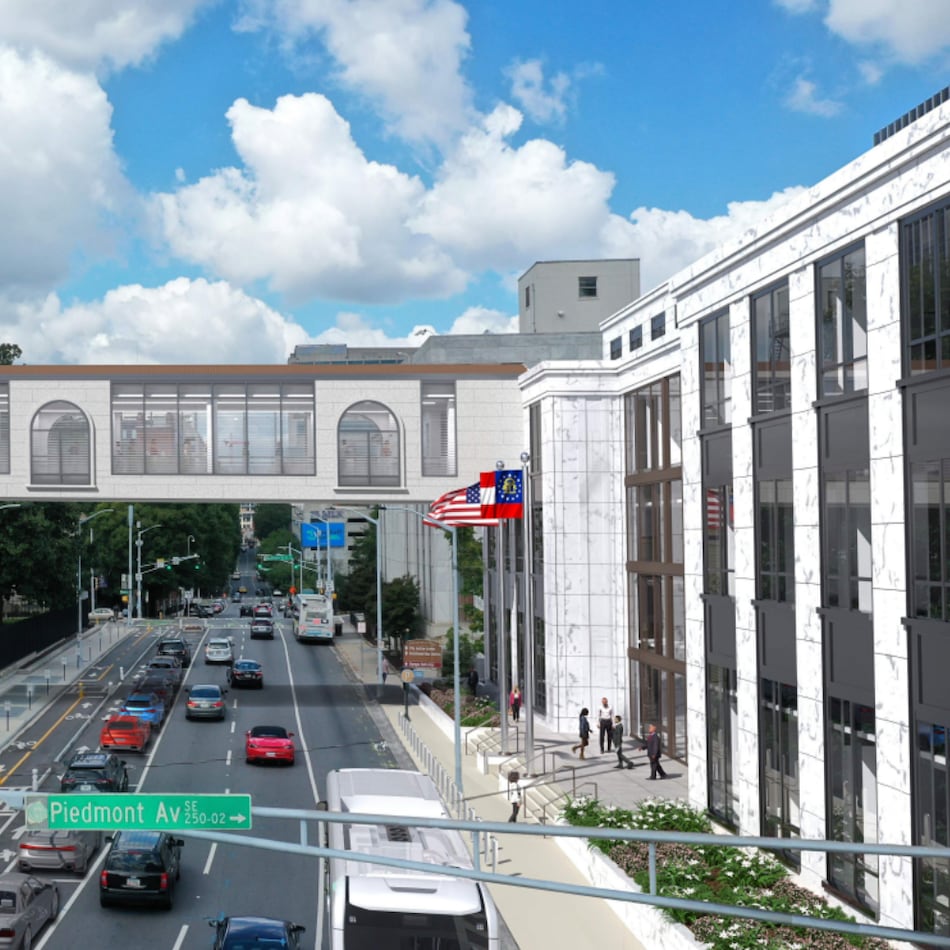WASHINGTON (AP) — An Atlanta family whose home was wrongly raided by the FBI will get a new day in court, the Supreme Court ruled unanimously on Thursday.
The decision revives a lawsuit filed after a predawn 2017 raid in which armed members of an FBI SWAT team smashed in a front door and set off a flashbang grenade, pointing guns at a couple and terrifying a 7-year-old boy before realizing they were in the wrong house.
The FBI team quickly apologized and left for the right place, with the team leader later saying that his personal GPS device had led him to the wrong address. But Trina Martin and her then-boyfriend, Toi Cliatt, and her son were left with lasting trauma and a damaged home.
Martin and Cliatt filed a lawsuit against the federal government accusing the agents of assault and battery, false arrest and other violations. While the government is typically immune from lawsuits, they are allowed in some cases. Congress changed the law specifically to allow suits over wrong-house raids after a pair of them made headlines in the 1970s, their lawyers said.
But lower courts tossed out the case.
Public interest groups from across the political spectrum urged the justices to overturn the ruling from the 11th U.S. Circuit Court of Appeals, saying it severely narrows the legal path for people to file law enforcement accountability cases against the federal government.
The high court ruled narrowly, reversing the appeals court on one of the issues in the case. The justices said it was wrong to toss out the case based on the Supremacy Clause, which says federal laws supersede state laws when the two conflict.
The federal law at the center of this case actually refers back to state law, Justice Neil Gorsuch wrote. While the government is typically immune from lawsuits, it allows those claims in some situations that would create liability under state law.
“Congress has entered the field and expressly bound the federal government to accept liability under state tort law on the same terms as a 'private individual,'” Gorsuch wrote.
That means there's no need to involve the Supremacy Clause, and the case should move forward, the justices said. The ruling sends the case back to the 11th Circuit, which will continue to weigh other questions raised by the case.
One of those questions is when the government can be held liable for mistakes made by law enforcement officers in the line of duty. In a concurrence joined by Justice Ketanji Brown Jackson, Justice Sonia Sotomayor suggested that raids on wrong houses likely aren't the kind of mistakes that are immune from liability.
Lawyers at the nonprofit Institute for Justice said they're looking forward to “continuing the fight."
In a brief telephone interview, Trina Martin said she was ecstatic.
“Between laughing and crying, I can’t stop,” she said. “If the Supreme Court can say they’re wrong, it gives me all the hope in the world.”
___
Associated Press writer Sudhin Thanawala in Atlanta contributed to this story.
___
Follow the AP's coverage of the U.S. Supreme Court at https://apnews.com/hub/us-supreme-court.
Credit: AP
Credit: AP
Credit: AP
Credit: AP
Credit: AP
Credit: AP
Keep Reading
The Latest
Featured






